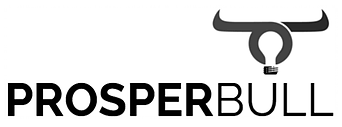As the Rich Get Richer, So Can the Poor: There’s Finally a Way to Break the Cycle of Poverty
We know the rich get richer and the poor get poorer, but did you know that kids from low-income families have a mere 4% chance of breaking into the upper-middle class?
Education is meant to create an equality of opportunity, a level playing field for all to have a platform for success at their fingertips — should they choose. But, this isn’t the reality, and this isn’t new.
Every generation has faced this. Since most schools fail to teach personal finance — one of the most important lessons — and those that do, use dated or ineffective learning materials, the nation’s youth are left to learn these lessons from their families. When 63% of the adult population can’t pass a basic personal finance quiz, teens from low-income families are left to learn the hard way in life: through first-hand trial and error.
While much of what we learn in life is taught the same way, some lessons are difficult to recover from. And in terms of personal finance, one small mistake can change the trajectory of one’s financial future. Our nation understands the importance of financial literacy, and yet it’s not widely — nor effectively — taught in the U.S. Despite some valiant efforts, most states still fail its students as teachers don’t feel qualified to teach it, traditional textbooks aren’t effective, and online materials prohibit those who need these lessons most.
To help give students across the country a fighting chance of financial success, Prosperbull, the financial literacy program designed for the real-world, is offering 50 States of Financial Freedom. It’s a program that offers a free year of its course for a school in every state.
Let’s take a look at the four main issues systematic and generational poverty boils down to:
1. Most Teens Will Learn Personal Finance On Their Own
Schools are widely teaching financial literacy so, in return, students are left to learn personal finance from their parents, who (if they’re not well off), won’t know how to teach financial literacy.
Making your own mistake is a good way to ensure poverty and financial struggles. One small mess up in finance can set in motion a domino effect that can create a lifetime of financial troubles.
Solution: Schools should help level the playing field and teach financial literacy to students.
2. Teachers Don’t Feel Qualified to Teach Financial Literacy
63.8% of teachers do not feel qualified to teach financial literacy, according to a study by the FDIC. Similarly, 63% of American adults could not pass a basic financial literacy quiz, the same study found.
Since the majority of teachers don’t feel qualified to teach it (and never mind that we don’t know if the 63% that do feel qualified are even in the 37% who could pass a basic financial literacy quiz) it simply doesn’t get taught. Even with resources such as textbooks, many teachers still aren’t able to effectively lead a classroom in learning personal finance.
Solution: Self-study financial literacy education materials so that students do not need a teacher to help them learn, they can instead learn on their own.
3. Traditional Financial Literacy Textbooks Aren’t Effective
No 16-year-old cares about a ROTH IRA and at best it simply teaches teens how to memorize financial jargon common on Wall Street long enough to pass their next exam. One of the leading reasons schools fail to teach financial literacy is because those who have tried, find that the materials are simply ineffective at teaching teens how to handle money matters.
While these old fashioned textbooks provide definitions and sleep-inducing theories, students gain real-world knowledge, leaving teens no more prepared for life after school and rendering it a waste of precious class time.
Solution: Teach personal finance for the real-world iso teens can learn finance without making their own mistakes.
4. Online Programs Hurt At-Risk Students Most
In an attempt to modernize financial literacy, many programs have gone online. In theory, it’s great. Students can access the programs whether they’re at school or home — but that’s assuming all students have computer access. The response? U.S. schools spent an estimated $56 billion nationwide to give students computers… however, this still overlooked the fact that many — around 100 million Americans to be more precise — do not have internet access at home, rendering their devices and online programs useless.
Some schools do offer a limited number of wifi hotspots, but this doesn’t help every student in need. So what are the nation’s most at-risk students that lack internet access at home to do? Without the internet, many fail to complete online coursework. In time, grades drop, motivation plummets, and at-risk students feel the barriers to finishing school are too high. The result? Dropout rates increase, and the cycle of intergenerational poverty persists.
Solution: Financial literacy needs to provide real-world lessons that are relevant to teens.
Bottom Line – Effective Financial Literacy Education is Key
So what’s the solution for financial literacy education that is relevant, accessible, and affordable? The Prosperity Blueprint by ProsperBull, a real-world personal finance workbook for teens. It’s available in print copies as well as a digital copy that enables teachers to download as many copies as they need within the school year for the cost of one textbook – or free.
A school in every state will get a free year and every school that is submitted will automatically receive 50% off the digital version of the program. Submit your school by September 30.
50 States of Financial Freedom Details
How to submit a school: Visit Prosperbull.com to submit the high school of your choice.
Who can submit: Anyone can submit their local high school.
Submission deadline: September 30.
Winners will be announced: October 5th
Media Contact
Company Name: ProsperBull
Contact Person: Kelly Main
Email: Send Email
Phone: 6035209058
Address:Harvard Square
City: Cambridge
State: MA
Country: United States
Website: https://www.prosperbull.com/


